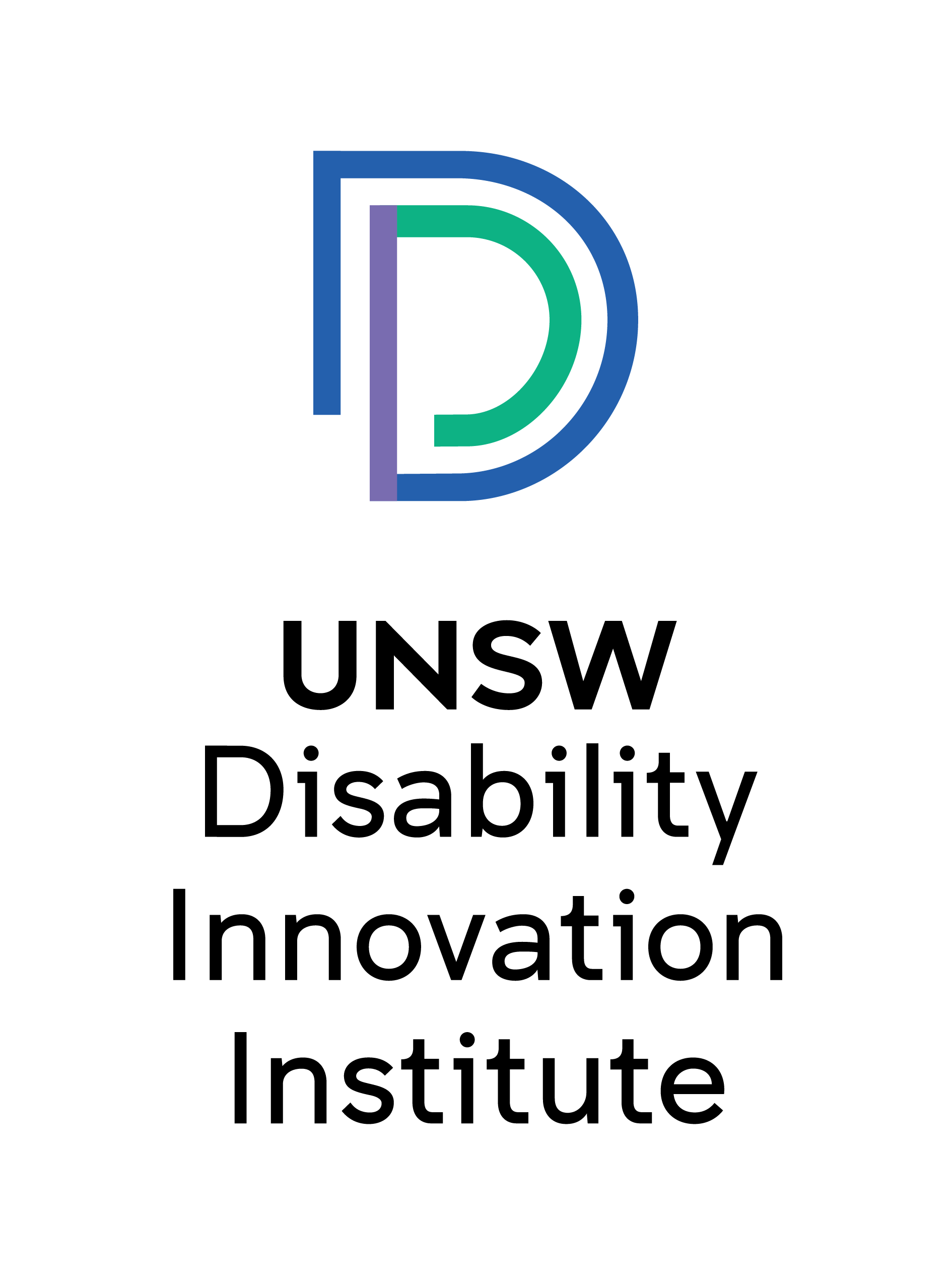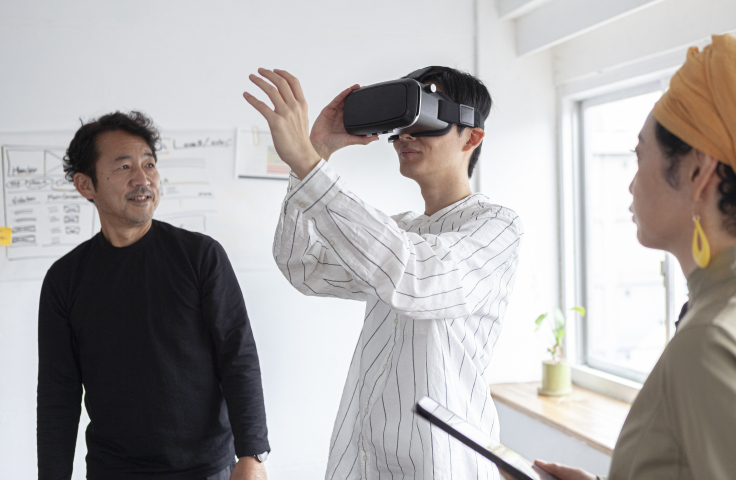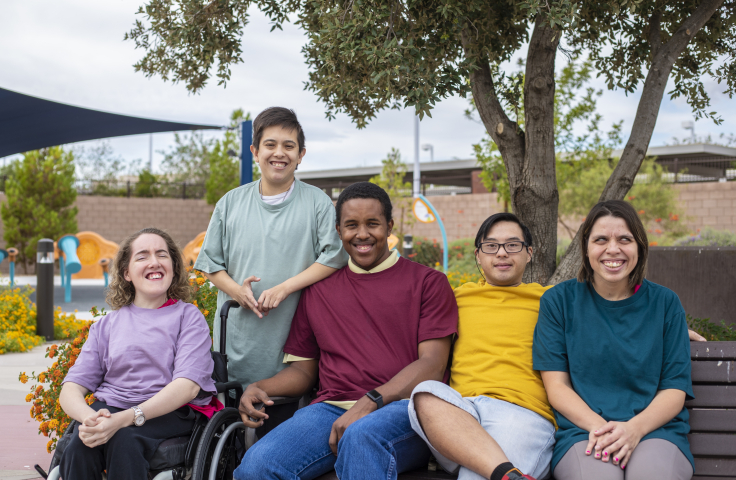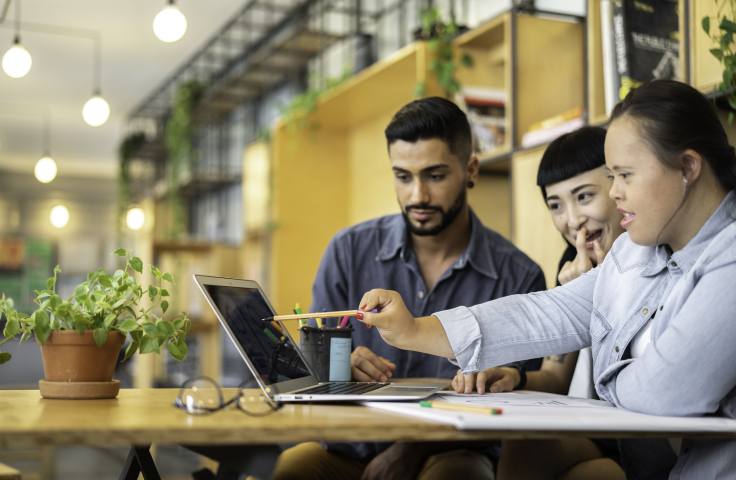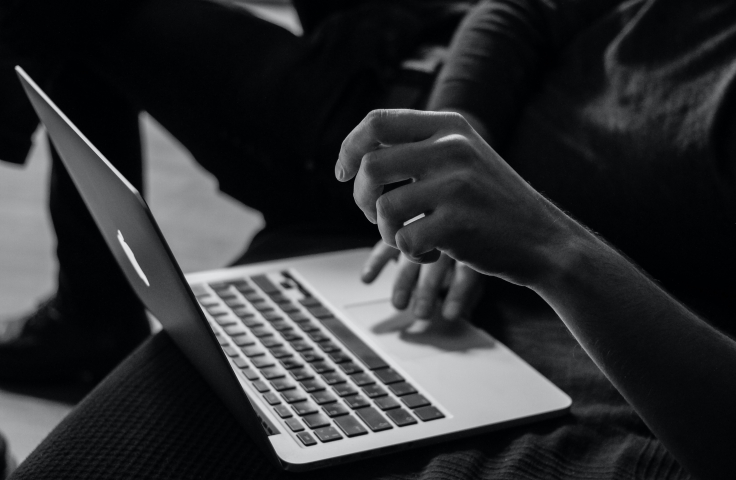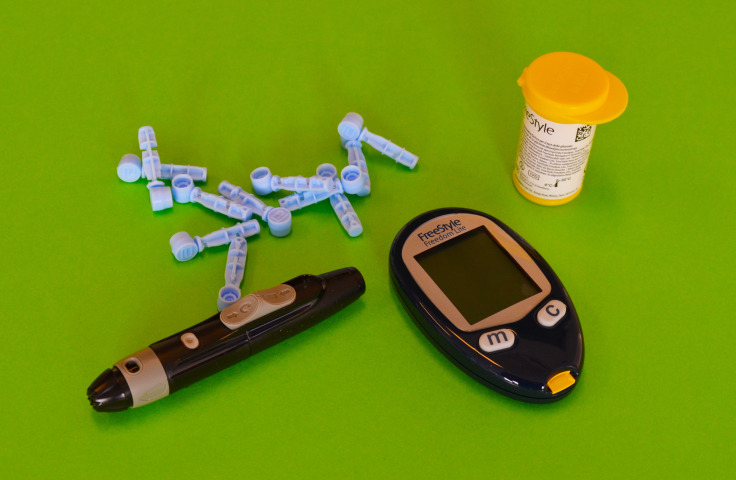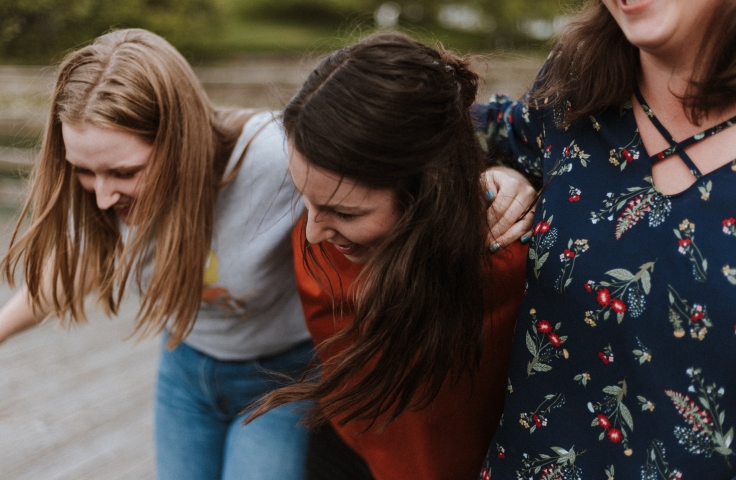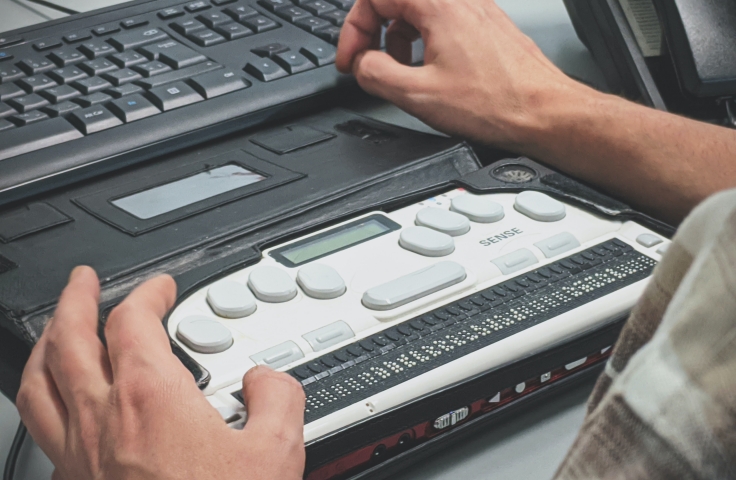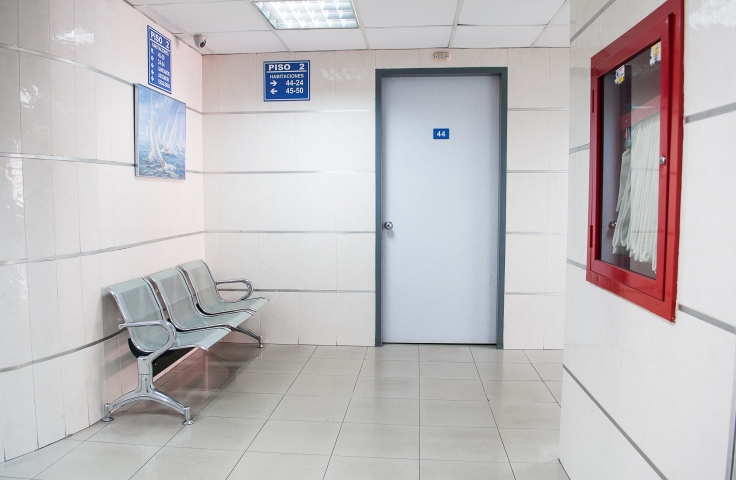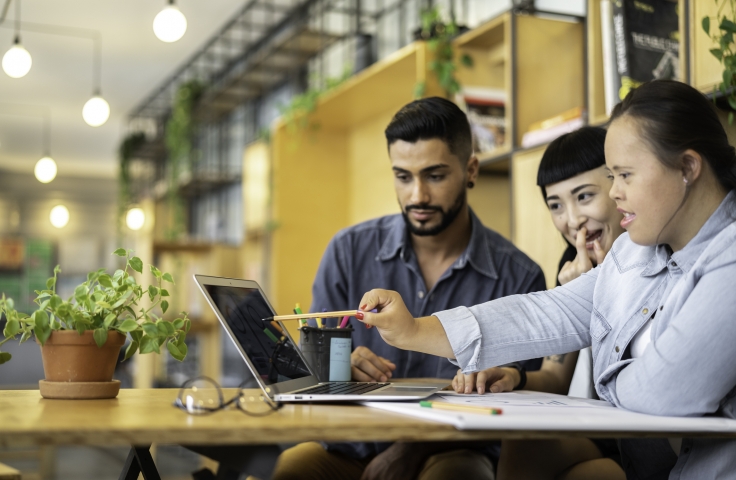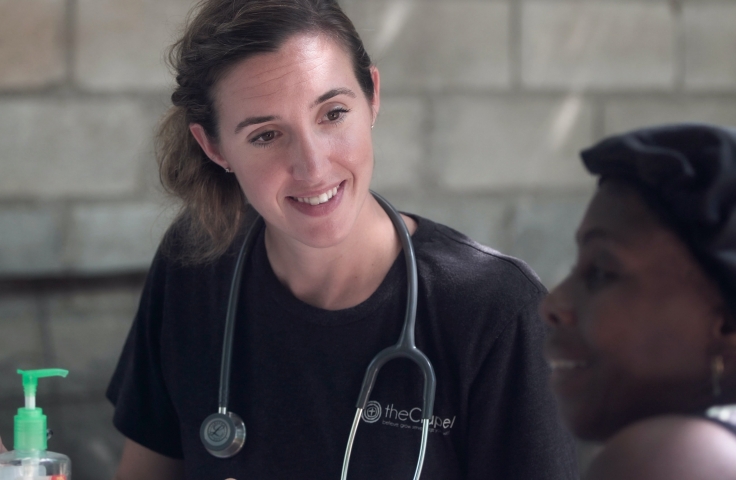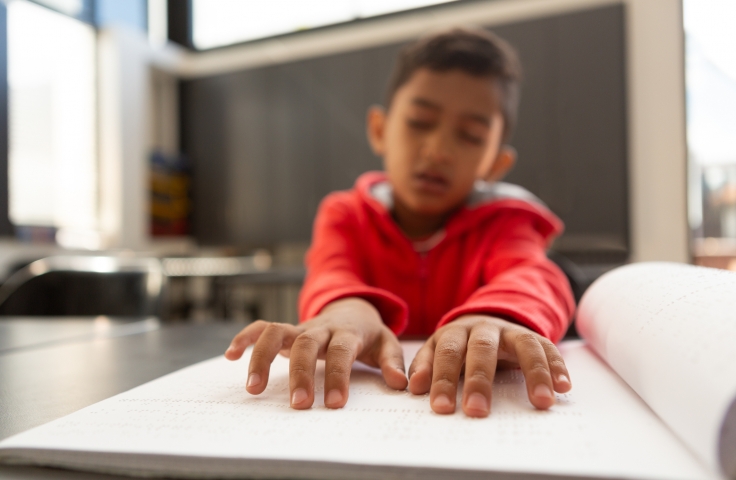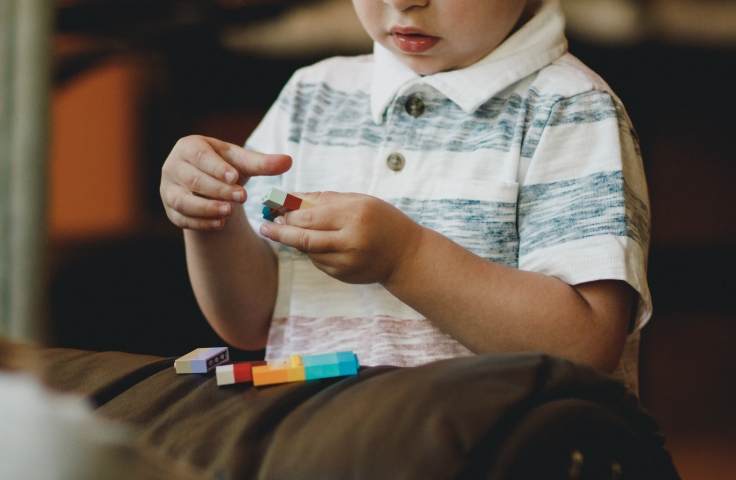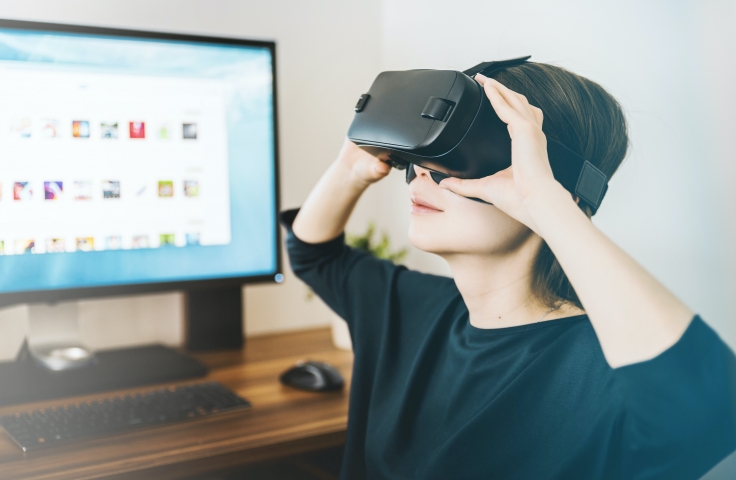This project uses the latest in indoor positioning technologies to research, construct and test a highly accurate (<10cm), robust, discreet, wearable and cost effective wayfinding and navigation system for people who are blind or have low vision.
Two blind or low-vision research partners are deeply involved in the development of the system, and the team has developed, deployed and tested the ultra-wide band (UWB) system in the UNSW Roundhouse. The system will be tested by the blind and low-vision team members when COVID-19 restrictions have been eased.
“Collaboration is the key… Inclusive and interdisciplinary research helps all members to find new opportunities.”
The team has applied for a NSW Small Business Innovation & Research Program Hyperlocal Navigation grant.
The project team includes experts in indoor positioning and indoor navigation, developing wearable devices, mapping and spatial information databases, human-computer interaction, mobility and orientation for people who are blind or have low vision, and industrial design. The team consists of:
• Dr Binghao Li
• Prof. Sisi Zlatanova
• Dr Eduardo Benitez Sandoval
• Mr Euan Ramsey-Stewart
• Ms Megan Taylor.
Publications:
• Li, B., Zhao, K. & Sandoval, E. B. (2020) 'A UWB-Based Indoor Positioning System Employing Neural Networks', Journal of Geovisualization and Spatial Analysis 4(2): 18. https://doi.org/10.1007/s41651-020-00059-2
• Sandoval, E. B., Li, B., Diakite, A., Zhao, K., Oliver, N., Bednarz, T. & Zlatanova, S. (2020) 'A Visually Impaired User Experience using a 3D-Enhanced Facility Management System for Indoors Navigation', Companion Publication of the 2020 International Conference on Multimodal Interaction, October 25-29, The Netherlands. https://doi.org/10.1145/3395035.3425247
Photo by Eren Li from Pexels

